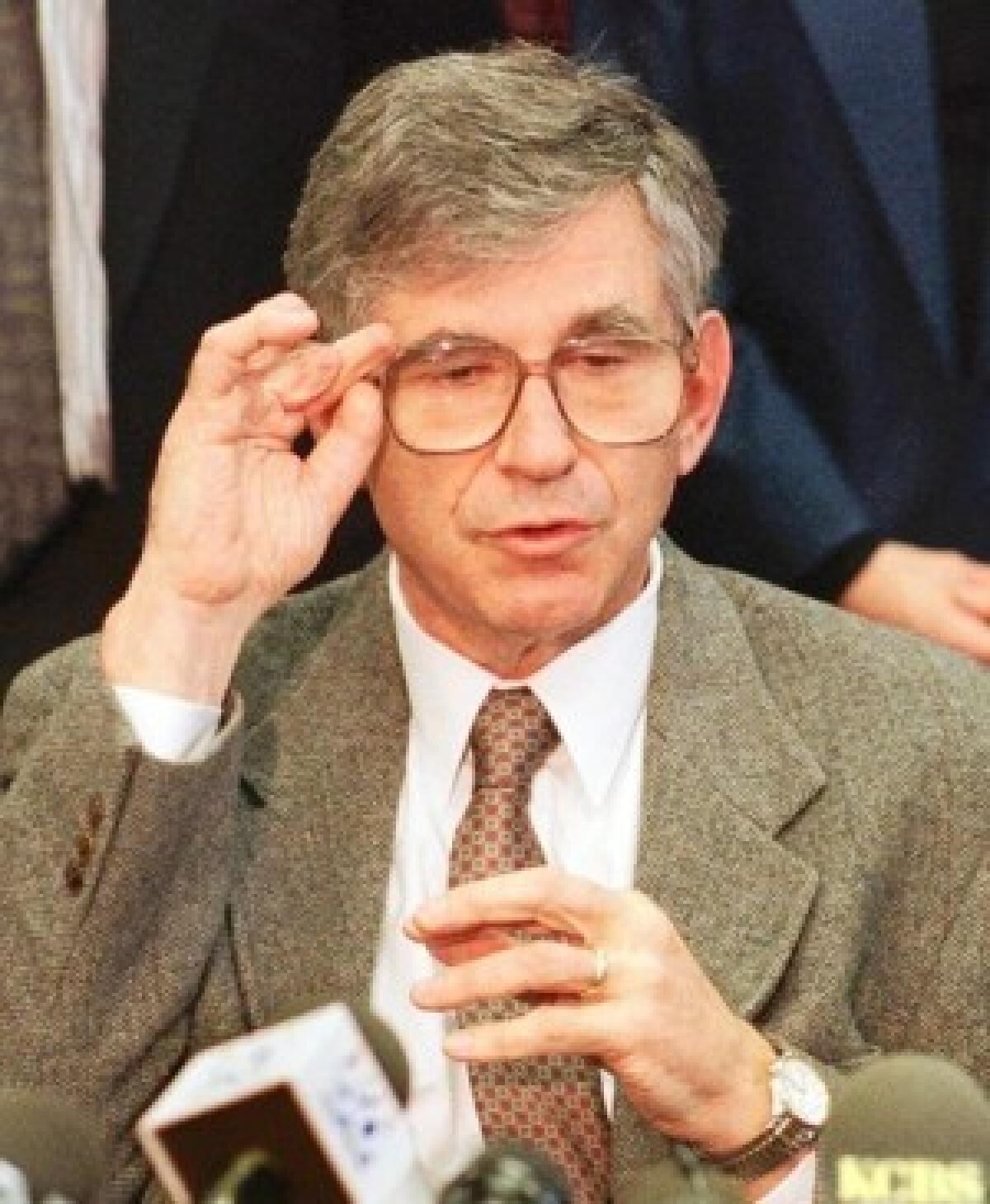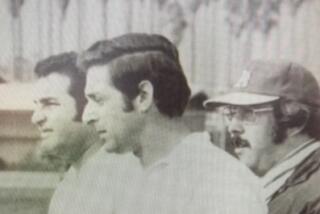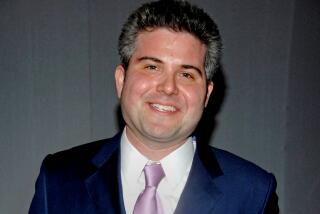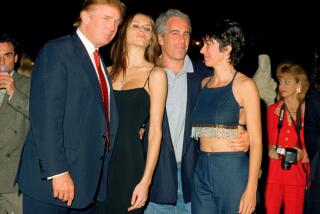Dr. Charles Epstein dies at 77; geneticist survived attack by Unabomber

Dr. Charles Epstein, a UC San Francisco medical geneticist who studied Down syndrome and pioneered genetic counseling for families with affected children, but whose career was temporarily interrupted by a vicious 1993 attack by the notorious Unabomber, died Feb. 15 at his home in Tiburon, Calif. He was 77 and had been battling pancreatic cancer.
Epstein helped create a model genetics clinic, the first on the West Coast, and “helped establish and legitimize the profession of genetic counseling,” Joann Boughman of the American Society of Human Genetics said last year when Epstein received the group’s major leadership award.
He was “one of the most prominent human geneticists in the country,” said Dr. Sam Hawgood, dean of UC San Francisco’s School of Medicine, where Epstein spent most of his career.
But his career almost ended prematurely. On a Tuesday morning in June 1993, Epstein opened a padded brown envelope about the size of a videocassette that had come in the mail. The envelope exploded, destroying three of his fingers, breaking his arm and burning his hand, face and abdomen. The blast blew out kitchen windows and screens and ripped a table top off its legs.
Epstein later said that if the package had been pointed in a slightly different direction, the bomb would have killed him.
The researcher did not practice abortion or genetic engineering and his work was not controversial. He had never heard of the Unabomber until the package arrived. But he had recently been the subject of a New York Times article, just like computer scientist David Gelernter of Yale University, who received a similar bomb three days later.
The Unabomber subsequently taunted Epstein in another letter for not being smart enough to know better than to open a package from someone he didn’t know.
The bombs were found to be the work of former UC Berkeley mathematics professor Theodore Kaczynski after the Unabomber delivered a long anti-technology diatribe that was recognized by his brother David.
In a plea deal that avoided a trial that could have resulted in the death penalty, Kaczynski admitted responsibility for mailing 16 bombs that killed three people and injured 29 others, and was sentenced to life in prison.
Epstein called Kaczynski a coward: “He himself, who was willing to sentence other people to death, was afraid to die himself. He wasn’t willing to die for his ideas. He was willing for me to die for them.”
Charles Joseph Epstein was born Sept. 3, 1933, in Philadelphia, the son of immigrants from Ukraine. He received his bachelor’s degree from Harvard University in 1955 and his medical degree from the same school in 1959.
He met his wife, the former Lois Barth, on a blind date when he was a freshman at Harvard and she was at Radcliffe and proposed three months later, but the couple did not marry until both were enrolled in medical school. He joined UC San Francisco in 1967.
He is best known for his work on Down syndrome, which is characterized by an extra copy of chromosome 21. He hypothesized in the early 1970s that the extra chromosome would produce multiple copies of certain proteins, which would produce the physical characteristics of the syndrome — a thesis that many researchers initially derided but that was ultimately proved correct.
He and his wife also developed a mouse model of Down syndrome that they made available to researchers around the world, which accelerated research on the syndrome.
In his clinical practice, he found that the parents of children with the syndrome were often overwhelmed by the prospect of caring for their offspring. For them, he had simple advice: “Take that child home, and care for and love that child as you would any other.”
During recent years, he also helped found the independent Buck Institute for Research on Aging in Novato, Calif., and was its chairman of the board.
In addition to his wife, Epstein is survived by three sons, David of Ossining, N.Y., Jonathan of San Francisco and Paul of Piedmont, Calif.; a daughter, Joanna Epstein of San Francisco; two brothers, Herbert of Watertown, Mass., and Edwin of Berkeley; and six grandchildren.






